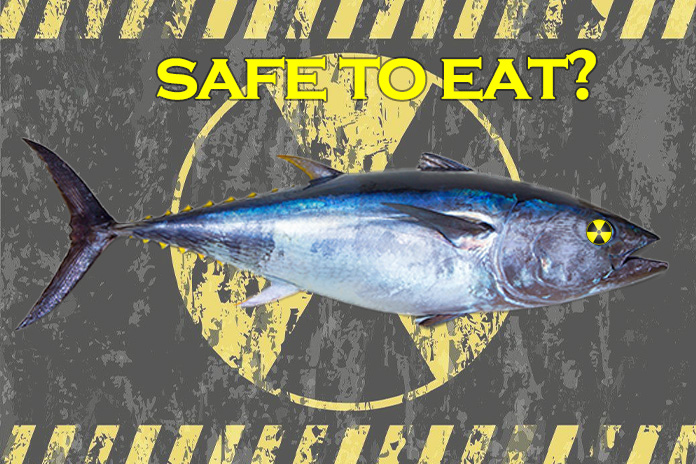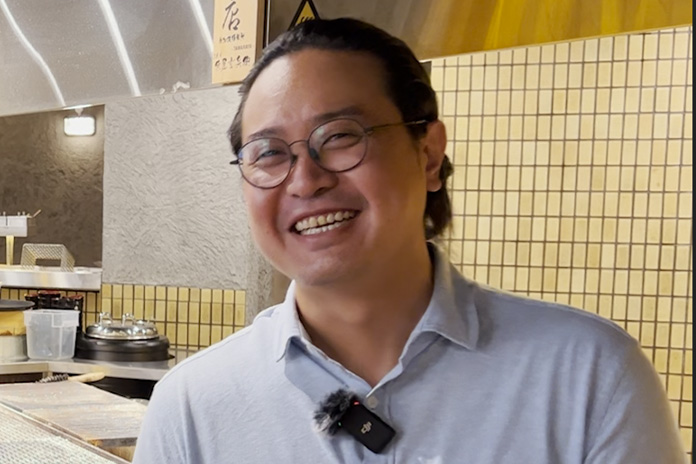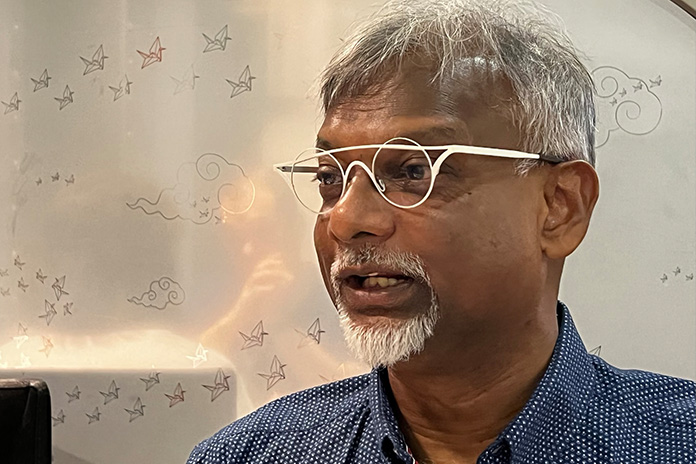
THE negative publicity about the wastewater from the Fukushima nuclear site being released into the Pacific Ocean doesn’t seem to be bothering diners of Japanese cuisine too much in Singapore.
“Scientifically, I reckon it is a safe move to discharge the wastewater,” says Liang Shuo Kuo, whose Responsible Seafood Company imports fresh food for the local market.
“The Japanese wouldn’t want to poison their own water and wreck a viable industry for themselves,” he reasons.
He does concede that in the short term there could be a decline in consumption.

“I think there will be a drop in demand due to public perception and those erring on the cautious side of things,” Shuo reckons.
Arul Inthirarajah, the owner of Sushi Airways, a Japanese restaurant located in the Arab Street enclave, observes a slight decline in business since the wastewater release began on 24 August.
“Crowds may be 10% less. But there’s been not much difference despite the media hype,” Arul notes.
Responsible Seafood’s Shuo has not seen a drop in demand from the restaurants he works with. “But we do have guests asking us if it is safe to consume the fish.”
Arul expects business to normalise in about a month or so. “Just like what happened with mad cow disease, swine fever and avian flu.”

Follow The Science?
The International Atomic Energy Agency (IAEA) has concluded that the controlled discharge would have a negligible impact on people and the environment.
The Japanese government took a cautionary stance and said it would take ‘appropriate measures, including immediate suspension of the discharge’ in the event unusually high concentrations of radioactive materials were evident.
Arul is adamant that “the science is clear”.
“There have been working nuclear reactors that have been discharging their waste water into rivers and oceans in other parts of the world for years, with no public reaction, because there was no political axe to grind in those cases,” he explains.
“I think that the diners who actually read the science know that there has been too much media hype, and that there are political angles rather than science-based ones that are driving the fear-generating news,” Arul adds.
China and Japan have had a troubled relationship for a long time on a variety of issues ranging from the colonisation of parts of China to the recent incidents in the South China Sea involving China’s ships.
ALSO READ: How to get your message across effectively
Strong Reaction
China has reacted strongly to the news of the release of this treated wastewater, by banning the importation of Japanese seafood. As Japan’s largest export market for its seafood — about US$600 million in 2022 — the impact of the ban is telling.
Macau and Hong Kong are banning seafood from Fukushima and nine other Japanese prefectures.
Japan’s fishing industry is facing falling prices and uncertainty about its future, with talk of some businesses considering shutting down operations.
Just as toilet paper vanished from supermarket shelves during Covid, salt is being wiped off the shelves in China, as panic buying kicked in ahead of the discharge of water, a process expected to go on for decades. A similar phenomenon of salt flying off supermarket shelves took place when the magnitude 9 earthquake and tsunami hit northeast Japan on 11 March 2011.
China will be monitoring its sea for any radiation impact from the wastewater release, according to a Ministry of Ecology and Environment statement.
Tokyo Electric Power Company (Tepco), which operates the wrecked Fukushima Daiichi nuclear power plant, says it is sampling seawater as well.
But Tepco’s assurances may not be met with wholehearted acceptance.
Soon after the tsunami, Tepco identified damage to the reactors but delayed making this public for two months.
In a 2012 civil case brought by Tepco shareholders, four former Tepco executives were ordered to pay $95 billion in damages to the operator of the wrecked Fukushima Daiichi nuclear power plant for not preventing the disaster.
Meanwhile, would you think twice before heading to a Japanese restaurant?



















